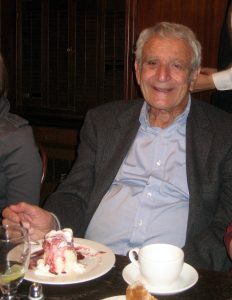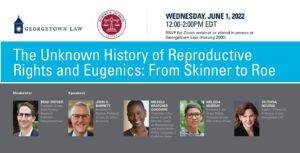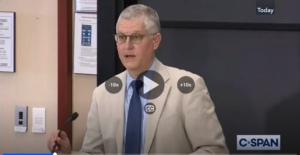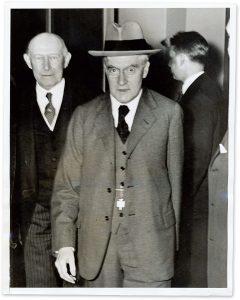I am truly sad to report that former Yale law professor Charles Reich died last Saturday at age 91. He was a brilliant mind, a beautiful writer, a wise teacher, a sharp lawyer, a kind soul, and a dear friend and hero to many.
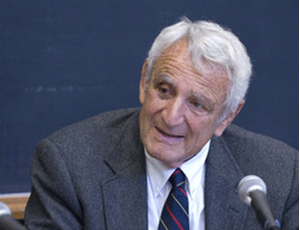
Here’s an obituary article in today’s NYT: https://www.nytimes.com/2019/06/17/books/charles-reich-dead.html.
Much will and much should be written about Charles Reich, his work, and his influence. Writers will emphasize The Greening of America, surely and properly—these are its closing paragraphs, a permanent creed of hope:
We have all known the loneliness, the emptiness, the plastic isolation of contemporary America. Our forebears came thousands of miles for the promise of a better life. Now there is a new promise. Shall we not seize it? Shall we not be pioneers once more, since luck and fortune have given us a vision of hope?
The extraordinary thing about this new consciousness is that it has emerged out of the wasteland of the Corporate State, like flowers pushing up through the concrete pavement. Whatever it touches it beautifies and renews, and every barrier falls before it.
We have been dulled and blinded to the injustice and ugliness of slums, but the new consciousness sees them as just that — injustice and ugliness —as if they had been there to see all along. We have all been persuaded that giant organizations are necessary, but it sees that they are absurd, as if the absurdity had always been obvious and apparent. We have all been induced to give up our dreams of adventure and romance in favor of the escalator of success, but it says that the escalator is a sham and the dream is real.
And these things, buried, hidden, and disowned in so many of us, are shouted out loud, believed in, affirmed by a growing multitude of young people who seem too healthy, intelligent and alive to be wholly insane, who appear, in their collective strength, capable of making it happen. For one almost convinced that it was necessary to accept ugliness and evil, that it was necessary to be a miser of dreams, it is an invitation to cry or laugh. For one who thought the world was irretrievably encased in metal and plastic and sterile stone, it seems a veritable greening of America.
They also will highlight his article “The New Property,” and how it led to the Supreme Court’s landmark decision in Goldberg v. Kelly.
There’s much, much more.
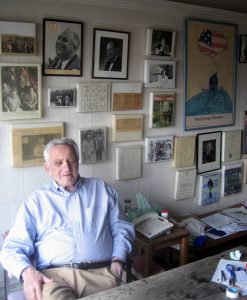
See each of Charles Reich’s books.
See everything that Charles wrote about the U.S. Supreme Court, including what he wrote about Justice Hugo L. Black, for whom Charles clerked during October Term 1953, the term in which the Court decided Brown v. Board of Education.
See the twenty-four (at least) deep and lyrical law review articles that Charles published between 1962 and 2010,
See this fine Twitter thread by Professor Karen Tani: https://twitter.com/kmtani/status/1140983478416052225.
Here is a blog where Charles Reich wrote and posted some things in the past couple of years: https://www.charlesareich.com/blog-1?fbclid=IwAR2ZHBkLCrS6DlJEEPLzdZb2RsUDM_ecjLtxfLIIUro8xfKz1d2wvAayO_o. In the “Observatory” section, see his great photos of his friend Justice William O. Douglas hiking alongside the C&O Canal, and a super photo of them sharing a look, a canteen, and smiles.
I recall some advice that Charles gave me about law professor scholarship (and really it is advice about literature, which Charles knew well, and which he believed that any serious writing should try to be.) He said that it is important to find worthy topics and do the very best that you can, with all that you know and with all that you can learn, from inside yourself, to write about them. I asked him what his topic had been, especially when he was getting started. He recalled spending a summer, I think it was the one after his first year of teaching, sitting in the Yale law library, working at a table covered with many books, writing “about America.”
He did it very, very well – he saw America, he loved it, and he improved it.
